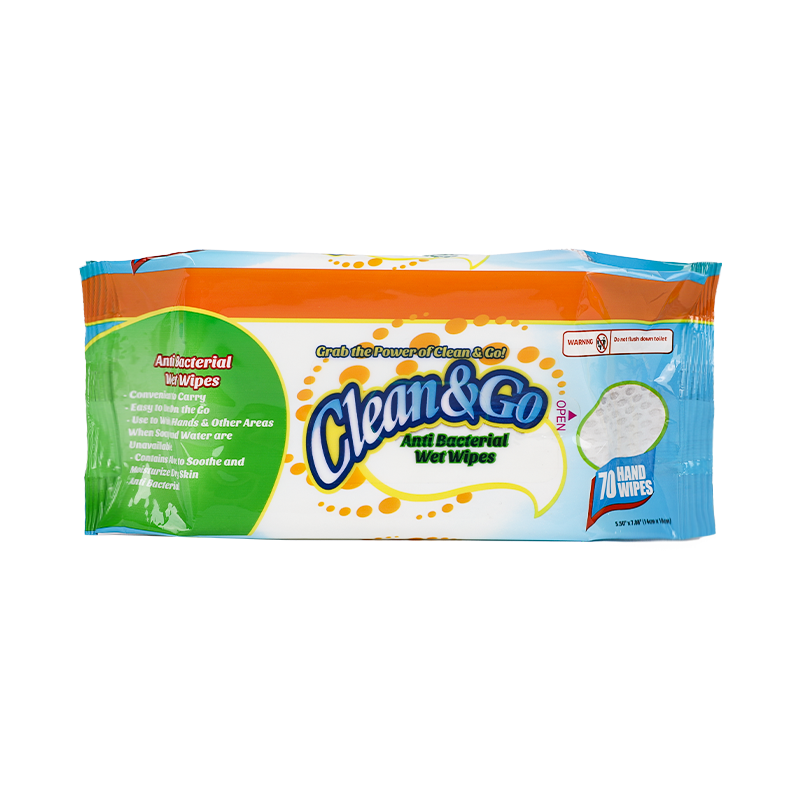There are thousands of wet wipes products, but those with cleaning and antibacterial disinfection effects have a unified name, either sanitary wipes or disinfection wipes. Recently we heard that sanitary wipes are "on the line"?
Sanitary wipes that were not supposed to "work" in the hospital appeared in the hospital. Taking a closer look, it turns out that the disinfectant wipes and the sanitary wipes were originally twin brothers. As the elder brother's disinfectant wipes, the ability is even better. The brothers have different "work fields". One day, the sanitary wipes replaced the elder brother's disinfectant wipes. I ran into the hospital... Are you curious like me as to why this happened? After a moment of relaxation, let's officially start today's topic. What are the differences between these two types of wet wipes, and where are they used? This article will introduce in detail the difference between the twin brothers of sanitary wipes and disinfectant wipes, and at the same time interpret the current status and future management trends of "more capable" disinfectant wipes, with a view to bringing help to relevant industry personnel.

There are differences between disinfectant wipes and sanitary wipes in terms of definition, scope of application, relevant regulations, and supervision status, which are mainly reflected in
Household Cleaning Wipes Manufacturers:
1. Different management requirements: For sanitary wipes, the National Health and Health Commission supervises them in accordance with the "third category of disinfection products". Before they are listed on the market, they need to meet GB15979-2002 "Sanitary Standards for Disposable Sanitary Products" and WS 575-2017 " Sanitary Wipes Sanitary Requirements"; while there are currently no supporting laws and regulations for disinfectant wipes, generally refer to the relevant disinfection management specifications for sanitary products, wet wipes, and medical institutions to prepare relevant listing materials;
2. The effect of killing microorganisms is different: the relevant requirements of sanitary wipes are: in addition to the microorganisms themselves not exceeding the standard, at the same time, the microorganisms on the surface of the pollutants (generally: Escherichia coli, Staphylococcus aureus, Candida albicans, etc.) More than 90% sterilization effect; disinfectant wipes are relatively strict because most of the dipping solution is a disinfectant. When used in a hospital, it needs to achieve the disinfection effect of the same level of disinfectant (production test reports are mostly based on the dipping solution of disinfectant wipes against Escherichia coli). , the bactericidal effect of Staphylococcus aureus ≥ 99.999%, if the product needs to be marked as having an effect on fungi, the soaking solution should also have a bactericidal effect of Candida albicans ≥ 99.99%);
3. The scope of application is different: because the immersion liquid of disinfectant wipes is mostly disinfectant, the killing and disinfection effect is good, and it can meet the requirements of hospital use. Therefore, disinfectant wipes can be used for surface disinfection of hospitals and medical equipment; sanitary wipes are in the process of killing The effect of microorganisms is not as good as that of disinfection wipes. Generally, it does not achieve the disinfection effect. It is more for cleaning and sterilization, which cannot meet the requirements of hospital use. Therefore, sanitary wipes cannot be used on the surface of hospitals and medical equipment.
To sum up, the current standard for disinfecting wipes has higher requirements for sterilization than sanitary wipes. Disinfecting wipes can be used in hospitals and medical equipment, but sanitary wipes cannot. At present, there is a lack of supporting laws and regulations for disinfecting wipes. Refer to wet wipes and other related standards.

